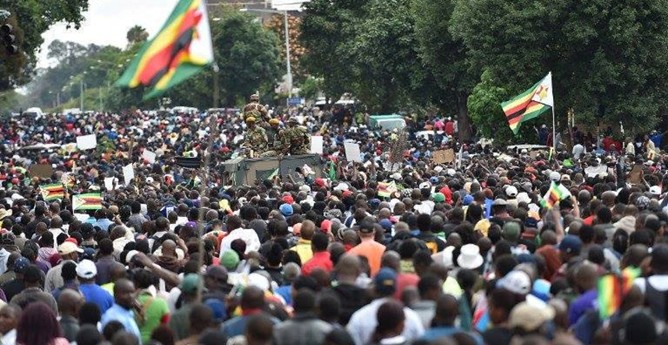The Issue of Zimbabwe’s crisis remains a complex matter for its sudden neighbour South Africa. The relationship between the two nations can be described as contentious at best. The number of Zimbabwean immigrants who live in South Africa and other countries due to economic hardship and authoritarianism number in the thousands. In South Africa their main destination they face xenophobic attitudes where they are viewed as burdens on the country. In spite of this negative narrative and stereotype it has been argued that South Africans owe a lot to Zimbabweans. This is because when fleeing the political repression and poverty of their country they contribute to South Africa’s economy whether documented or not.
When Zimbabwe’s economy crumbled in the early 2000s, thousands fled to South Africa in search of work and safety. Though some entered undocumented, the overwhelming majority contributed meaningfully to society. These migrants — teachers, nurses, engineers, gardeners, builders and domestic workers — helped fill vital gaps in South Africa’s labour market, often for lower wages. This not only benefited households and employers but bolstered entire industries from agriculture to private healthcare. Despite popular belief, migrants do pay taxes. Documented or not, every Zimbabwean, or any foreigner for that matter, who buys bread, clothing, or airtime contributes to VAT. Those who work formally pay income taxes and contribute to the Unemployment Insurance Fund — even though many are not eligible to claim from it. They pay rent, support local businesses and invest in township economies. To dismiss these contributions is to erase a hidden pillar of South Africa’s economic structure.
Zimbabwean migrants did indeed offer their contributions economically to South Africa, however the risk of some if not all being undocumented is a hazard for both themselves and their peers. The exodus of migrants from Zimbabwe may have had benefits in the short term but they need to be engaged with on a more diplomatic level regarding their plans for the future. The Zimbabwean people need a better long-term solution and option to their problems and it requires the South African government in Pretoria to take a tougher stance on its counterpart in Harare where little progress since the 2018 ousting of late long time Zimbabwean President Robert Mugabe has been made. South Africa currently remains in disarray concerning what route President Cyril Ramaphosa should take as regards to Zimbabwe since the Presidencies of Thabo Mbeki and Jacob Zuma. This is a time when Ramaphosa should be sterner as regards the ineptness of current Zimbabwean President Emmerson Mnangagwa.
The political environment is also in turmoil. Elections have consistently lacked fairness, and journalists and activists are regularly arrested. Opposition leader Job Sikhala was released in 2024 after nearly 600 days in prison. Journalist Blessed Mhlanga is among many who have been denied a fair trial and accused of inciting violence simply for granting an interview to an opponent of President Mnangagwa, Blessed Geza. Consequently, the ruling party, Zimbabwe African National Union – Patriotic Front (ZANU PF), continues to hold power, and the opposition is at its weakest since the formation of the Movement for Democratic Change (MDC) in 1999. It seems unlikely that Mnangagwa, who became president after Mugabe’s ouster in the 2017 coup, will step down at the end of his term in 2028.
Zimbabwe is sailing an stormy sea as a ship whose captain is of the stubborn old guard and incapable of manoeuvring it. Mnangagwa is popularly known by his nickname the “crocodile”. As the former Vice President and previously Minister of Defence with close ties to the military he has yet to relax his grip on power and manoeuvre it out of the current economic crisis. Mnangagwa is more of a strongmen veteran of the anti-colonial struggle than a pragmatic politician. Zimbabwe is on a tipping point where the ruling party Zanu-PF could face an unprecedented uprising or civil war if the “Crocodile” chooses to run for a third term. He would of course restrict the opposition further and end up further harming the opposition activists in question.
Zimbabwe is on a dark path for which South Africa must brace itself. Restriction of freedoms and a crisis of influx of refugees does not bode well.
Article written by:
Yacoob Cassim
Journalist at Radio Al Ansaar






